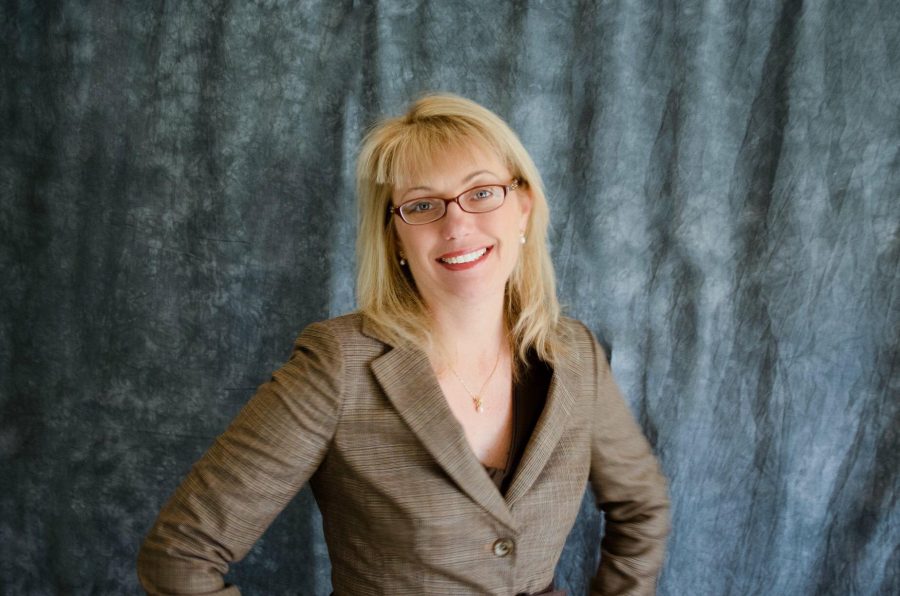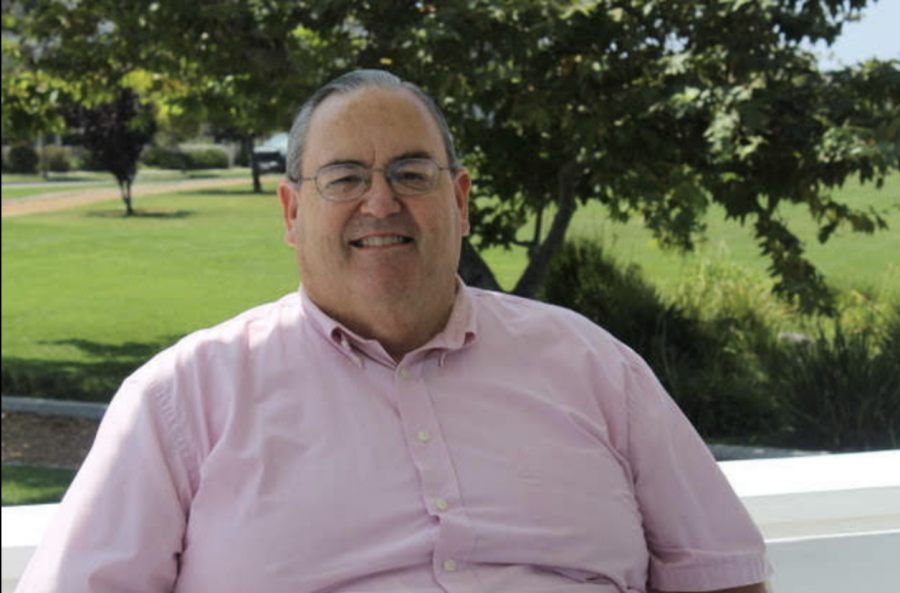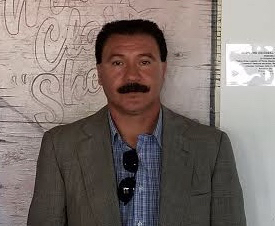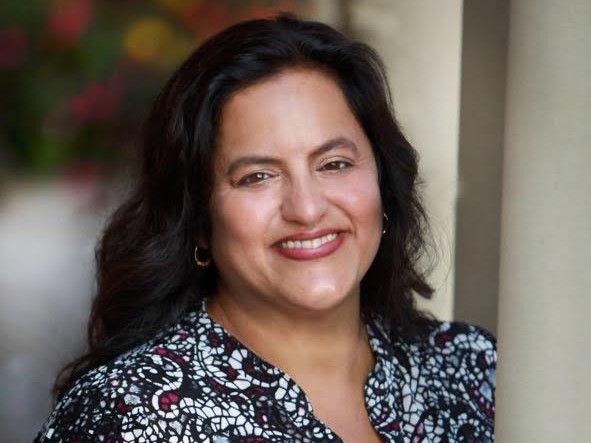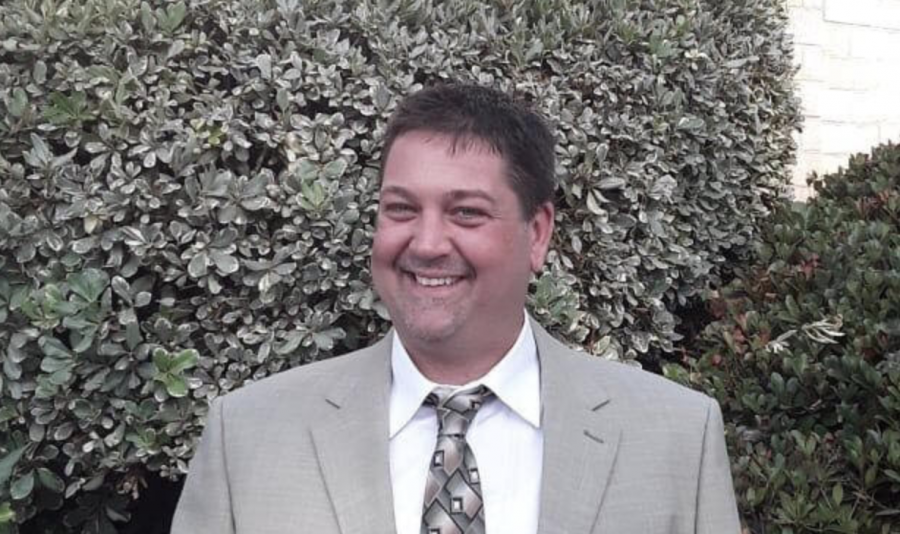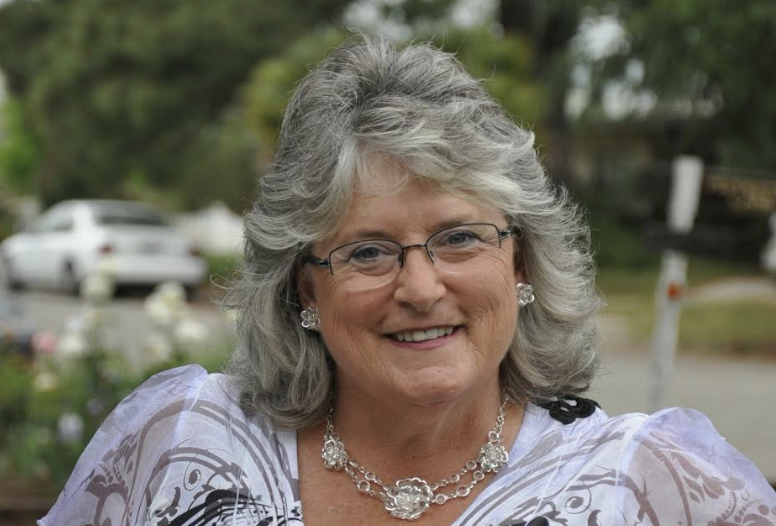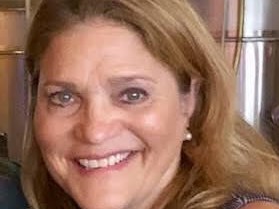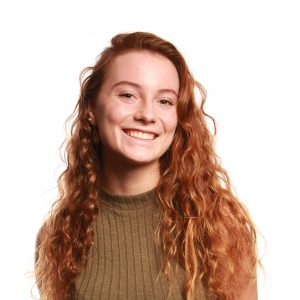INTERVIEWER: Can you tell me your background as a Venturan?
DEBORAH MEYER-MORRIS: I’ve lived in the county for many years —for 24 years. We lived 15 years in Oxnard before we moved to Oxnard nine years ago to Ventura. Since coming to town nine years ago, we have raised two children. They both graduated from Ventura High School: my younger daughter two years ago, and the older one 2013. I was president of the Anacapa Middle School PTO. I am a county-wide Ventura—sorry—I’m a county leader for Ventura County 4-H. In the last nine years, in terms of Ventura’s concern, I was on the 4-H Council Board for two years as a secretary. I was a Home Arts PDC chair or co-chair for, I think, four or five years. I was a project leader, put on leadership events. I was a Girl Scout Leader; I was the Nut Chair for the Island View Service Unit for two years. In terms of things I’ve done with the school district—I should’ve written this down. Let’s see. I was on multiple committees that I’ve—
[Meyer-Morris asks to pause the interview to check her website to double check which committees she has been apart of that are Ventura-specific].
INTERVIEWER: Are you ready?
MEYER-MORRIS: Yep. Alright, so in answer to your question about what I’ve done since I’ve lived in Ventura—I’m gonna start over—I was the middle school PTO president of Anacapa for two years. I was also on the PAC. I did a massive amount of fundraising when we were in Anacapa because it was during the two years that I was the co-PTO president that we built the electronic billboard. We paid for that with fundraisers. I was on the Ventura High School PTSA for six years. I had club board positions, including being the parliamentarian and I served on multiple committees, including the senior barbecue, which I was the chair of. I worked in the Ventura High School snack bar. I was on the Measure H committee and I did phone banking. That was the first parcel tax—the one that did not pass. I was on the Healthy Safe, Supportive Schools Collaborative committee, which is also known as the HS3C. I was a grant reader for the Ventura Educational Partnership. I was on the Ventura High School Cheer Boosters. I was on the Local Control and Accountability Plan—the LCAP committee. I was on the Ethnic Studies and Social Justice committee. I’ve done multiple—hundreds of hours, probably—of pro bono student advocacy for parent rights and student rights for special education, Title IX and the Uniform Complaint Process. Our family was one of the founding families of Ventura Charter School and I was a Ph.D. advisor there. I was on Ventura County 4-H council, actually, for three years. I was the Home Arts PDC Chair for four years, either chair or co-chair. I was a delegate to the California State 4-H South Section Leadership Team, 4-H leader, co-chair of Food Faire & Fashion Revue, as well as Girl Scout Leader for six years and then the chair of the Island View Service Unit. I think those are the things—oh, and I’ve judged mock trial for the last four years for the Ventura County Office of Ed., but at the Government Center. Okay, I think that’s it.
INTERVIEWER: Alright, so if you were elected, at the end of your term, how will Ventura Unified schools be using technology in ways that they aren’t right now and what will be your steps to achieving that result?
MEYER-MORRIS: Hmm, that’s a really interesting question. One of the things that I think we could really be doing a better job at is being more transparent. So the School Board has agendas, but right now you have to ask for special permission to be on the mailing list to get them ahead of time and they come with attachments that aren’t searchable and the School Board meetings, as you know, they’re taped, but they’re only shown on CAPS-TV like at the original time when they’re on, which is 7 o’clock on a Tuesday, and then they’re repeated on Friday at 7. We don’t have an inventory of past School Board member—meetings that are searchable, so one of the things I want to use technology for is to make like, an actual database so that what the School Board does is more transparent and the community and the students, too, can participate better because they’ll be able to know what’s going on in their school district, because if you miss those two things, you’ve missed the meeting, so I want to definitely do that, and also make searchable the attachments that go with the School Board meetings. Did you want to know technology at the school, as well?—’cause I have some other ideas.
INTERVIEWER: If you’d like to add, go for it.
MEYER-MORRIS: Sure. Right now, the school district has 27 different websites because they have 20 different—27 different school sites. I think that one of the major uses of technology that’s not being used by the school district that could easily be implemented is to standardize the information that’s on these websites so if you’re an elementary school parent, it doesn’t matter if you live on the West Side or the East Side, you can get standardized resources for your family and your students and they’d be even across the board—the same as middle school. And I became of all of the differences on the websites earlier in the year when I was helping a little girl from DATA and her family, and I realized that the DATA kids had way fewer resources than Cabrillo and so that caused me to look at Anacapa and look at Balboa and see like, what kind of bullying and different forms were on there and I realized they were not uniform, and that was—that’s part of the equity and the efficiency part of my platform is like, I believe that all families and students should have access to the same information, so that’s another thing I want to do with technology.
INTERVIEWER: In your opinion, what is the next step to ensuring that high school students are prepared for the Common Core curriculum and its standardized testing?—so like the SBAC.
MEYER-MORRIS: I’m not in favor of Common Core, in case you didn’t go to the School Board forum the other day. I don’t support that. I think that we need to meet students where they are and I think part of the problem with Common Core and the testing is it expects everyone to be on the same linear line and that’s not possible. I mean, you know from your friends and family that people learn differently and people test out differently, and I think it’s really a disservice to kids that don’t learn the same way to think that they or everybody is going to be pushed through really what I consider to be a sieve at the same rate, because kids don’t learn like that and both of my children were neurodivergent learners, so my older daughter is dyslexic and has ADHD and I know that under Common Core, she wouldn’t have been advanced in math in second grade like she was, and that was one of the ways we found out that she was dyslexic—was there was such a gigantic disparity between her math ability and her lack of reading ability. So in terms of getting high school kids ready for the test, I mean, honestly, you can test however much you want and test them and train them, but ultimately, it’s about educating kids for life, not for taking a test. So I would rather have you all educated so that you’re functional, thinking—critical thinking, ‘cause look, I’m an attorney. I totally believe in critical thinking skills for your whole lives, not just so that you can get a good score on the SBAC test, so I’m gonna try and teach the whole child and teach you to be good citizens and teach you to be well-rounded, critical thinkers.
INTERVIEWER: So the Ventura Unified budget for this year is around 188 million dollars. If I gave you 10 million more dollars today to invest in our school district however you see fit, how would you spend it?
MEYER-MORRIS: The first thing I would do is fully fund the Suicide Prevention Plan, which is Ed. Code 215, which is a state mandate that went into effect, not this school year, but the last school year and our district has not implemented it. In order to do that, that requires that teachers be trained, staff be trained on recognizing and helping kids to get to resources for suicide prevention. It’s a huge—kids’ mental health is a huge issue right now—I’m sure you’re aware of that. There’s a giant increase in kids killing themselves, anxiety and depression. So in link to that, we also have to have more counselors and we have to have counselors going all the way down to elementary school levels, because sadly, the suicide rate has even doubled for kids that are in the age of 17—7 to 14, so that, to me, is something that’s really important, and I think also, we could deal with bullying and some of the other issues that are kind of insidious that have been taking a backseat, because social/emotional issues keep a lot of kids from coming to school and keep a lot of kids from actually performing at their best, and so if we could deal with those things and have children that are, you know, coping and functional and have supports and feel engaged, I think not only are we going to improve how many kids are coming to school on a regular basis, which also, in turn, generates money for schools, because if we have a higher ADA, we automatically are getting more money from the state. But, kids aren’t gonna come to school under certain circumstances, so if I had 10 million dollars, I would do what I could to build a safety net and deal with the social/emotional issues that prevent a lot of kids from having access.
INTERVIEWER: What do you think is the most pressing issue facing our schools today and how can it be addressed?
MEYER-MORRIS: The most pressing issue, I think, is the budget. I mean, and I don’t mean our budget at the school district per se; it’s the budget from the state and their misperception that they’re giving us enough money on a local area plan to make a difference for kids. They’re trying—the state is trying to get us to be more accountable on a local basis by having the LCAP, but without sufficient funding and the LCAP is severely underfunded, we can’t do what we need to do. Just special education alone is hugely underfunded, but we have an ever-growing need for more special education dollars because those kids are all protected by federal law, and if we don’t provide them the services, we’re looking at more lawsuits and more administrative hearings from the outside, because they’re entitled to a free and appropriate public education. So, definitely, I would lobby for additional funding at the state level.
INTERVIEWER: Alright, so, sometimes to students, school board policy decisions seem to come almost out of nowhere. Most students don’t know their school board members, don’t know when the board meets, and aren’t informed about the decisions the board makes on a regular basis, like for example decisions about curriculum or disciplinary policies. If you are elected, how do you plan to cultivate a closer relationship between the board and the students, ensuring that they get a chance to speak on issues that pertain to them and are informed of decisions once they happen?
MEYER-MORRIS: Okay, well that goes back to what you asked me earlier about technology and how I would use it to improve what we’re doing. You know, kids aren’t alone in being frustrated about not having access and not having knowledge and transparency about what’s going on at the School Board. That’s one of the primary reasons that I’m running—is because I think a lot of decisions are made without adequate public information and notice. For instance, when those whole re-district thing was happening, I was the only adult that showed up and gave public comments at two public hearings. So I, you know, that kinda made me realize like hey, we are not getting the word out sufficiently and I believe that when we have the School Board meetings and we have the high school members that the high school members should really make it their priority to stay for the entire meeting, because when they leave early, and if they’re leaving early not because they’re bad people or anything like that, but because I don’t know that they understand that they could give comments like, if they stayed longer, you know? If they were more educated and they knew what was happening, they could provide information back to you at the school and maybe provide a synopsis of the issues that are coming up, and I don’t know if the high school members get the school board agenda ahead of time—I don’t think they do—but I would definitely have them add it on to the pre-notice list because they can receive the pre-notice of regular board meetings and special board meetings, just like adults, and they should, because that way then they would know what’s coming up, and whenever policies are going to be put forth before the School Board at a hearing, they’re always floated. They have to be floated once two weeks before they’re actually voted on. So, there’s a difference between the action calendar and the consent calendar, and I think we need to educate the members that are the high school members and, as well as students, about what these are, what it means and make sure that they know that when these things are coming up, not only is the public seeing them for the first time, but they are too, but they do have the ability to read them and give public comments and encourage them to give public comments.
Correction: An edit to this transcript was made at 6:55 p.m. on Nov. 3, 2018 to clarify that Meyer-Morris was the Nut Chair for the Island View Service Unit, not the net chair as previously stated.


